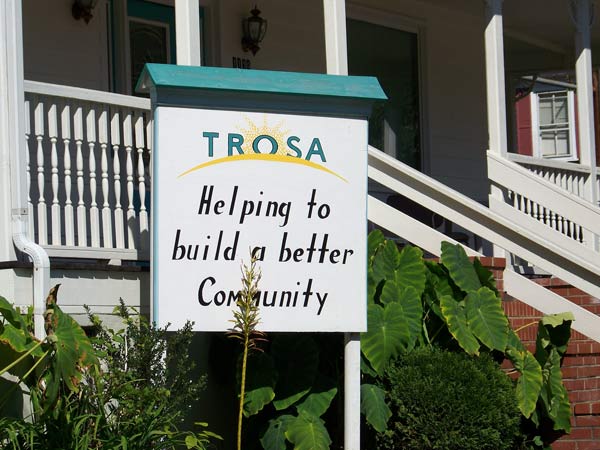By Jamon Glover
NCCU Staff Writer
the Durham VOICE
Whether you’ve lived in Durham your whole life or are a recent transplant, the influences of TROSA (Triangle Residential options for Substance Abusers) are hard to miss.

TROSA was founded in Durham in 1994 by Kevin McDonald. (Photo by Jamon Glover)
Established in 1994 by Kevin McDonald, TROSA has been impacting the lives of people in 80 counties across the state. Acceptance into TROSA is granted on one condition: you must have a strong desire to change your life.
“TROSA is more than just telling people to just say no,” says Kevin McDonald president of TROSA.
TROSA is a long-term residential substance abuse recovery program.
Their belief is that individual and group leadership encourages personal and social responsibility.
When candidates first arrive, they go on a 30-day internship to assess whether they really want to let the old life go and embrace a new reality.
They aren’t allowed to make or receive phone calls during this initial period, so that their focus is on what’s best for them.
They also go through an orientation to learn rules, schedules and what’s expected of them at TROSA.
After the 30-day mark, interns become freshmen and begin a year of character building and personal development. Six months into recovery, freshmen become full residents.
“During this time you learn how to accept people for who they are and you learn how to deal with your own issues, because we all had issues before we were introduced to drugs,” says Levry Robinson 1998 graduate.
Once they reach the 90-day mark, residents are allowed a monthly phone call.
“The program is designed to change you, so when you graduate you can maintain your sobriety. Life is hard, and being able to deal with it, without drugs or alcohol is key,” says Robinson.
From day one until the eighteenth month, TROSA provides everything: food, clothing and housing. TROSA has a medical department with a nurse practitioner and volunteers from Duke and UNC, including a physical therapist and a dermatologist.
TROSA is for both male and female residents, but they aren’t allowed to have relationships for the first year. If residents decide to begin a relationship after that, they have relationship and communication classes to help them be successful.
Former residents come back regularly as mentors and share their stories of failure and eventual success. They learn to help one another and they also receive in-depth counseling from the TROSA staff.
TROSA’s motto is, “Each one Teach one.” They believe strongly in the team system.
Robyn Duff, assistant to the president, told VOICE reporter Julian March, “We have a buddy system and we hold everyone around us accountable.”
Residents are placed in job training programs through one of the many businesses that TROSA operates: lawn care, transportation and automotive, just to name a few.
At the twenty-first month, residents begin the final stage of recovery. They begin looking for work in society as a means to prepare them for a future outside of TROSA’s umbrella.
The program lasts for two years, and upon graduation residents go into society with a personal savings account, a donated and refurbished car, transitional housing and marketable job skills.
TROSA gives residents, not only counseling, but sends them back into society with a healthy mindset and job skills to become productive citizens.
“TROSA gave me an opportunity to change my life and the only way I can keep my sobriety is to go back and share my experiences with the current residents,” says Robinson.